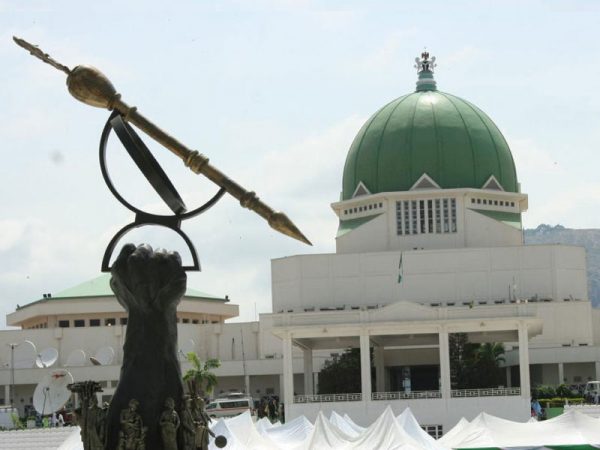
The number of females that will have seats in the House of Representatives in the forthcoming 10th National Assembly will be three less than those in the current 9th House.
This is just as all the females currently in the Senate lost their reelection bids in the last election, with only three women elected into the chamber for the next Assembly.
Presently, there are 13 females in the House and seven in the Senate.
Those in the Senate are Biodun Olujimi (Peoples Democratic Party/Ekiti), Oluremi Tinubu (All Progressives Congress/Lagos), Betty Apiafi (PDP/Rivers), Stella Oduah (PDP/Anambra), Uche Ekwunife (PDP/Anambra), Ladi Dadu’ut (APC/Plateau) and Aishatu Dahiru Mohammed, alias Binani (APC/Adamawa).
The late Rose Oko represented Cross River North Senatorial District on the platform of the PDP before she died. She has since been replaced by a male.
However, the female folks will be represented by only three new members in the 10th Assembly. They are Harry Banigo (PDP/Rivers), Idiat Adebule (APC/Lagos) and Ireti Kingibe (LP/FCT).
In the House, there are the Deputy Majority Whip, Nkeiruka Onyejeocha (APC/Abia); Beni Lar (PDP/Plateau), Lynda Ikpeazu (PDP/Anambra), Khadijat Abba-Ibrahim (APC/Yobe), Zainab Gimba (APC/Borno), Blessing Onuh (APC/Benue), Boma Goodhead (PDP/Rivers), Aisha Dukku (APC/Gombe), Adewunmi Onanuga (APC/Ogun), Omowumi Ogunlola (APC/Ekiti), Tolulope Akande-Shadipe (APC/Oyo), Taiwo Oluga (APC/Osun) and Miriam Onuoha (APC/Imo).
Out of these 13, seven were reelected. They are Lar, Onuh, Gimba, Abba-Ibrahim, Goodhead, Onanuga and Onuoha.
There will be seven freshers in the House. They are Obiageli Orogbu (LP/Anambra), Fatima Talba (APC/Yobe), Clara Nnabuife (YPP/Anambra), Marie Ebikake (PDP/Bayelsa), Maureen Gwacham (APGA/Anambra), Ehriatake Ibori-Suenu (PDP/Delta) and Regina Akume (APC/Benue.
According to the list of candidates fielded by the 18 registered parties for elective offices in the 2023 general elections, as released by the Independent National Electoral Commission, a total of 1,524 women would be contesting in the polls.
All the 18 parties fielded presidential candidates and their running mates. Out of the 36 persons in this category, there was only one female contestant, Ojei Chichi, the presidential candidate of the Allied Peoples Movement.
For National Assembly membership, 1,101 candidates vied for the 109-seat Senate and 3,122 for the 360-seat House of Representatives, meaning that a total of 4,223 candidates contested 469 legislative positions.
Out of these, 3,875 were males and 381 females, including one for presidential, 92 for Senate and 288 for House.
Meanwhile, out of the 36 states and the Federal Capital Territory, five did not field any woman as a candidate for the Senate, while one state did not field any woman as a candidate for the House of Representatives. They were Kano, Sokoto, Taraba, Yobe and Zamfara for the Senate; and Jigawa for the House.
At the state level, there are only 124 female governorship and deputy governorship candidates, out of the 837 candidates for the election holding on Saturday.
Also, only 1,019 women will participate in the state Houses of Assembly membership election, out of the 10,231 candidates.





